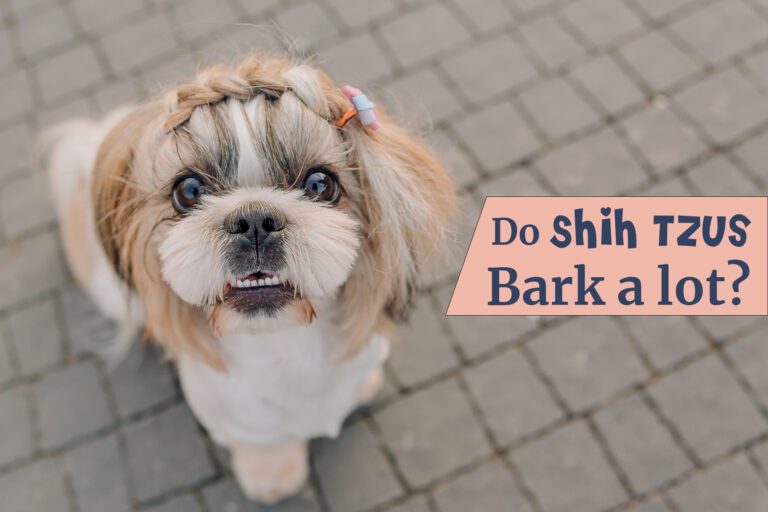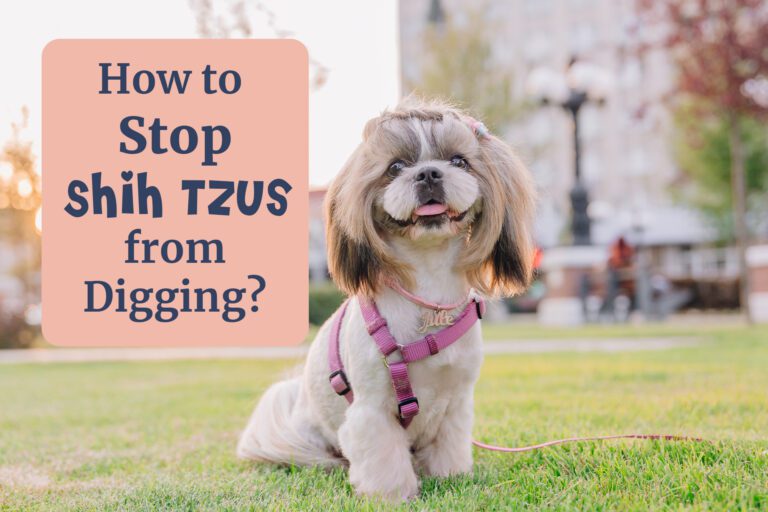Shih Tzu Howling: Reasons, Solutions, and Tips
Is your Shih Tzu howling, and you can’t figure out why? Don’t worry, you’re not alone. Shih Tzus are known for their adorable looks and friendly personalities, but they can also tend to howl for various reasons. In this article, we will unravel the mystery behind Shih Tzu howling, providing you with valuable insights into the reasons behind this behavior, as well as offering effective solutions and helpful tips to address it.
Understanding why your Shih Tzu howls is the first step in finding a solution. While some howling may be benign, it can signal pain, discomfort, anxiety, or attention-seeking behavior. By identifying the root cause, you can implement strategies to curb the howling and ensure your furry friend’s well-being.
The reasons behind Shih Tzu howling
Shih Tzus, like any other breed of dog, has their unique set of reasons for howling. To effectively manage the behavior, it is crucial to comprehend these underlying reasons. One common cause of howling in Shih Tzus is separation anxiety. These dogs are known for their loyalty and strong attachment to their owners, which can result in distress when left alone. Separation anxiety can manifest through excessive howling, destructive behavior, and self-harm.
Another reason behind Shih Tzu’s howling is attention-seeking behavior. These dogs are social animals who crave interaction and companionship. If they feel neglected or ignored, they may resort to howling to get your attention. This behavior can be reinforced if you respond to their howling by giving them attention or rewards. It is crucial to establish boundaries and provide consistent attention to prevent this type of howling.
Medical issues can also be a cause of howling in Shih Tzus. If your furry friend is experiencing pain or discomfort, they may howl to communicate their distress. It is essential to rule out any underlying health conditions by consulting with your veterinarian. If medical issues are identified, appropriate treatment should alleviate your Shih Tzu’s discomfort and reduce their howling.
Separation anxiety as a cause of howling in Shih Tzus
Separation anxiety is a common cause of howling in Shih Tzus. These canines develop robust connections with their owners and may experience anxiety when left unaccompanied. The howling serves as a distress signal, indicating their discomfort and need for companionship. If your Shih Tzu exhibits howling when you leave the house or is inconsolable when you return, separation anxiety may be the culprit.
To address separation anxiety, it is crucial to gradually acclimate your Shih Tzu to being alone. Commence by gradually increasing the time spent alone, starting with short periods and extending them progressively. Provide them with interactive toys or puzzle feeders to keep them occupied while you’re away. Additionally, creating a safe space, such as a crate or a designated area with their bed and toys, can help them feel secure in your absence.
Attention-seeking behavior and howling in Shih Tzus
Shih Tzus are social animals who thrive on human interaction. If they feel neglected or ignored, they may resort to attention-seeking behavior, including howling. This behavior can stem from a lack of mental or physical stimulation, as well as a desire for affection and attention from their owners.
To prevent attention-seeking howling, you must provide your Shih Tzu with regular mental and physical exercise. Involve them in interactive play sessions and offer engaging toys for mental stimulation. Establish a consistent routine that includes dedicated time for bonding and attention. By meeting their needs for interaction and stimulation, you can reduce their desire to seek attention through howling.
Medical issues and howling in Shih Tzus
Sometimes, howling in Shih Tzus can be a sign of underlying medical issues. If your furry friend is experiencing pain or discomfort, they may resort to howling to communicate their distress. This can be particularly true if the howling is accompanied by other symptoms such as limping, loss of appetite, or changes in behavior.
If you suspect that your Shih Tzu’s howling is due to medical reasons, it is crucial to consult your veterinarian. They can thoroughly examine and run any necessary tests to identify and treat any underlying health conditions. By addressing the medical issues, you can alleviate your Shih Tzu’s discomfort and reduce their need to howl.
Tips for preventing and managing howling in Shih Tzus
Preventing and managing howling in Shih Tzus requires a combination of proactive strategies and consistent training. Here are some tips to help you prevent and manage howling behavior:
Create a stimulating environment
Provide your Shih Tzu with plenty of toys, puzzles, and interactive games to keep them mentally engaged and prevent boredom.
Establish a consistent routine
Establish a consistent schedule for feeding, exercise, playtime, and rest to provide structure and routine. Predictability can help reduce anxiety and prevent howling.
Introduce positive reinforcement training techniques
Reward your Shih Tzu for desired behaviors and ignore or redirect their howling. Consistency and positive reinforcement can help shape their behavior over time.
Use calming aids
Consider using calming aids such as pheromone diffusers, anxiety wraps, or calming music to create a soothing environment for your Shih Tzu.
Seek professional help if needed
If your Shih Tzu’s howling persists despite your best efforts, it may be beneficial to consult with a professional dog trainer or animal behaviorist. They can provide personalized guidance and support to address the underlying causes of the howling.

Training techniques to address howling in Shih Tzus
When training your Shih Tzu to stop howling, positive reinforcement techniques can be highly effective. Here are some training techniques you can use to address howling behavior:
Teach the “quiet” command
Start by teaching your Shih Tzu the “quiet” command. When they start howling, say “quiet” firmly and wait for silence. Immediately reward them with praise and treats. Repeat this process consistently until your Shih Tzu associates the command with being quiet.
Redirect their attention
When your Shih Tzu starts howling, redirect their attention to a different activity or command. Engage them in a game, ask them to perform a trick, or give them a puzzle toy to keep their mind occupied. This helps shift their focus away from howling and towards a more appropriate behavior.
Practice desensitization
Gradually expose your Shih Tzu to situations or triggers that typically result in howling. Start with a low-intensity version of the trigger and reward them for remaining calm and quiet. Slowly increase the intensity over time, always rewarding them for appropriate behavior. This helps desensitize your Shih Tzu to the trigger and reduces their need to howl.
Remember, consistency, patience, and positive reinforcement are essential when training your Shih Tzu to stop howling. With time and practice, you can help them develop alternative behaviors and reduce their reliance on howling.

Creating a calm and secure environment for your Shih Tzu
Creating a calm and secure environment is crucial for preventing and managing howling in Shih Tzus. Here are some tips to help you create an environment that promotes their well-being:
- Provide a comfortable resting area: Ensure that your Shih Tzu has a cozy and comfortable bed or crate where they can retreat when they need rest or alone time.
- Minimize exposure to triggers: Identify and minimize exposure to triggers that may cause your Shih Tzu to howl. This could include loud noises, strangers, or other pets. Gradually introduce them to these triggers in a controlled and positive manner to help them overcome their fear or anxiety.
- Use positive reinforcement: Reward your Shih Tzu for calm and quiet behavior. This can include verbal praise, treats, or affection. By reinforcing calm behavior, you encourage them to remain composed and reduce their need to howl.
- Avoid punishment: Punishment can lead to fear and anxiety, exacerbating howling behavior. Instead of punishing your Shih Tzu for howling, focus on rewarding and reinforcing appropriate behaviors.
- Consider professional help if needed: If your Shih Tzu’s howling persists or worsens despite your efforts, it may be beneficial to seek professional help. An experienced dog trainer or animal behaviorist can provide personalized advice and guidance to address the specific needs of your Shih Tzu.
Seeking professional help for excessive howling in Shih Tzus
If your Shih Tzu’s howling becomes excessive or persists despite your best efforts, it is essential to seek professional help. A professional dog trainer or animal behaviorist can provide specialized guidance and support to address the underlying causes of the howling. They will assess your Shih Tzu’s specific needs and develop a tailored training plan to address the behavior effectively.
Additionally, they can help identify any medical issues or behavioral problems contributing to the howling. By working with a professional, you can ensure that your Shih Tzu receives the appropriate care and support to overcome their howling behavior.
Conclusion
Shih Tzu howling can be a puzzling behavior for owners to understand and address. By identifying the root causes and implementing appropriate strategies, you can help prevent and manage howling in your Shih Tzu effectively. Whether it’s separation anxiety, attention-seeking behavior, or underlying medical issues, there are steps you can take to address the behavior and ensure your furry friend’s well-being.
Remember to create a stimulating environment, establish a consistent routine, and use positive reinforcement training techniques to shape your Shih Tzu’s behavior. If needed, seek professional help to address excessive howling and ensure your Shih Tzu receives the necessary support and care.
With the right approach and patience, you can unlock the mystery behind Shih Tzu’s howling and create a harmonious environment for you and your furry companion.







